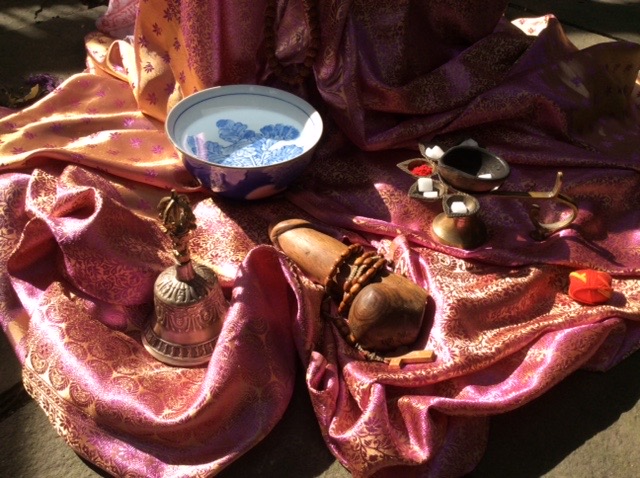Wallace Stevens' long poem of 1915, "Sunday Morning," is about the reenchantment of a world where worn-out belief systems have broken down. It opens with the image of an affluent woman enjoying Sunday morning at home--which is to say, not heading for church. Each section of the poem meditates on the collapse of orthodox religious faith from a different angle.
Section VII of the poem hit me like a thunderbolt when I read it at the age of 20:
Supple and turbulent, a ring of men
Shall chant in orgy on a summer morn
Their boisterous devotion to the sun,
Not as a god, but as a god might be,
Naked among them, like a savage source....
I recognized what I'd wanted long before I read those lines, and what I've wanted ever since: a community of embodied, erotically alive spiritual seekers. A band of ritually-minded queer men who don't wait for the Sacred to drop from the sky to find them, but who build it one intentional act at a time, from the ground up.
Stuart Wilde gets it: "How do you make something sacred? You say 'This is sacred' and you treat it that way." Radical faeries have understood it for decades. So does Brent Plate, who wrote
A History of Religion in 5 1/2 Objects: Bringing the Spiritual to its Senses.
Declaring what's sacred and then making it so isn't the same as New Age woo-woo dogmatically claiming eternal authenticity for a tradition that has been around since Time Immemorial (or sometime in the twentieth century, whichever came first). It's about birthing the soul through the actions of the body and the body's relation to material objects. It's about what I sometimes like to call "ritual literacy." It's often about starting simple and small: setting up a sacred image and bowing to it every morning. Lighting incense under the glow of the rising moon. Writing a prayer on a strip of paper and tying it to a branch. Work with what's around you: a few bricks laid side by side can become an altar. A shell from the beach can become an incense burner.
You don't have to have an explanation why you're doing any of these things. You don't have to know what a prayer is. You trust the god who leads you blindfolded deeper into the Mystery of existence. More to the point, in Wallace Stevens' words, you treat the object of your devotion "not as a god, but as a god might be." You figure it out later, and perhaps only partially.
We can bring this experimental, ad hoc reverence to our erotic life, just as we can to other aspects of our experience. We can place a hand on the heart of a lover at the beginning of an encounter, in recognition of his infinite value. We can pray naked. We can wear a ritual garment. (Call it fetish wear if you want.) We can chant a mantra to consciously focus our erotic energy. We can ejaculate into a bowl with friends and then pour it out, mixed with water, onto the roots of a tree at the edge of the forest, to affirm that our life is one with the Earth. We can say a word of gratitude for the surge of Life through our bodies. Through conscious breath and slow, intentional touch, we can turn arousal into a form of meditation.




No comments:
Post a Comment